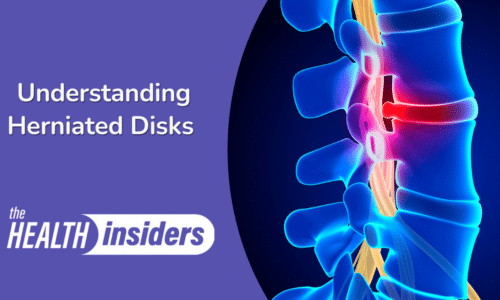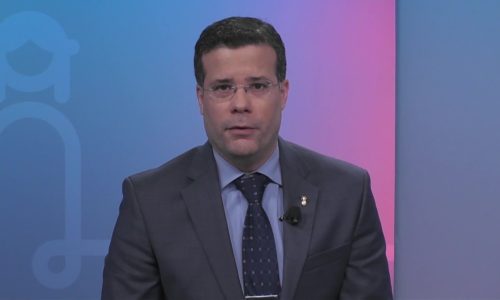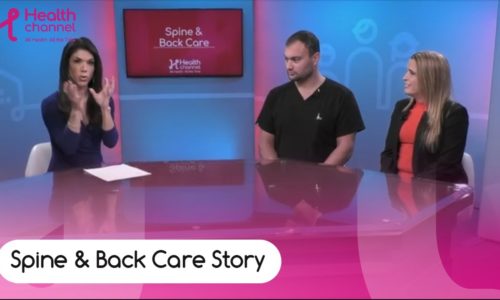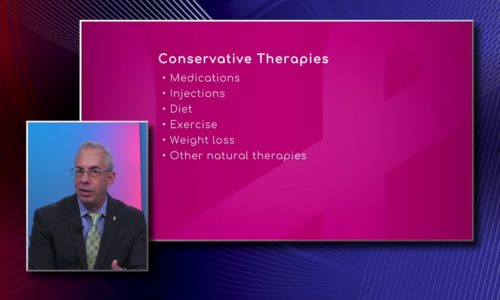What should I do if I wake up with a stiff neck? |
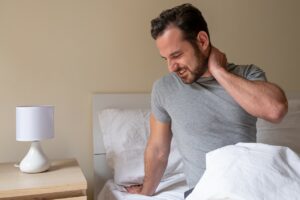
The common problem of awakening with a stiff neck is a topic that is addressed poorly, if at all, during medical training. In fact, it doesn’t even have a consistent name in the medical literature. It is sometimes referred to as “torticollis” or “wry neck”, but these terms also apply to more serious neurological or congential conditions.
What causes a stiff neck? The exact cause of a stiff or wry neck is sometimes never determined. It may be the result of a minor injury, a sudden jerk, or simply sleeping with the head in an awkward position. Some people believe that sleeping in a cold draft can cause this problem, although this has never been proven. The most likely source for the pain is a small swivel joint in the neck called a facet. These facet joints allow for great neck flexibility, but are also vulnerable to injury. With injury to a facet, muscle spasm develops that causes the neck to twist away from the painful side as a protective mechanism.
What can be done at home for a stiff neck? In most cases, the problem will resolve on its own in a few days to a week. There are, however, a number of measures that can help make you more comfortable or help speed up its resolution. These measures include:
- Taking an OTC pain medication, such as Tylenol or ibuprofen.
- Applying ice packs intermittently to the painful area during the first 24 to 48 hours of its onset. An ice massage combines the benefits of the application of cold along with massage and can help even more. This is done by freezing ice in a paper cup and massaging the painful area with the exposed ice for 10 minutes.
- Applying heat following the use of ice can help even further. This can be done using a warm, moist towel or heating pad, or by taking a shower and directing hot water to the neck. Some experts recommend alternating between heat and cold treatments for the first few days after the onset of neck pain.
- Gently massaging the neck muscles will help to relieve pain and encourage blood flow to the area. A topical muscle cream, such a Bengay or Icy-Hot, can be used along with massage.
- The neck should be kept mobile by performing gentle range of motion exercises. These are done by slowly moving the chin to the chest and then the ears to each shoulder. It is best to avoid the use of a cervical collar (neck brace) and to try to return to normal activities as soon as possible.
- Sleeping with your head on a low, firm pillow will help avoid the increased stress on the muscles and facet joints that sleeping on too many pillows can cause.
- Activities that require a full range of motion of the neck, such as driving, should be avoided until improved.
How might you suspect a more serious problem? Rarely, awakening with stiff neck can be due to a more serious problem than the self-limited problem described above. Neck pain associated with weakness or tingling in the arm or hand could be due to a herniated (ruptured) cervical disc. Forceful trauma preceding the onset of neck stiffness may have caused serious injury to bones, ligaments, or muscles in the neck. The presence of fever along with neck stiffness is suggestive of an infection, such as meningitis, and warrants prompt medical attention.
If you have any more questions just Ask Hanna, our health advisors are here to help.
Image: ©Shutterstock / tommaso79



